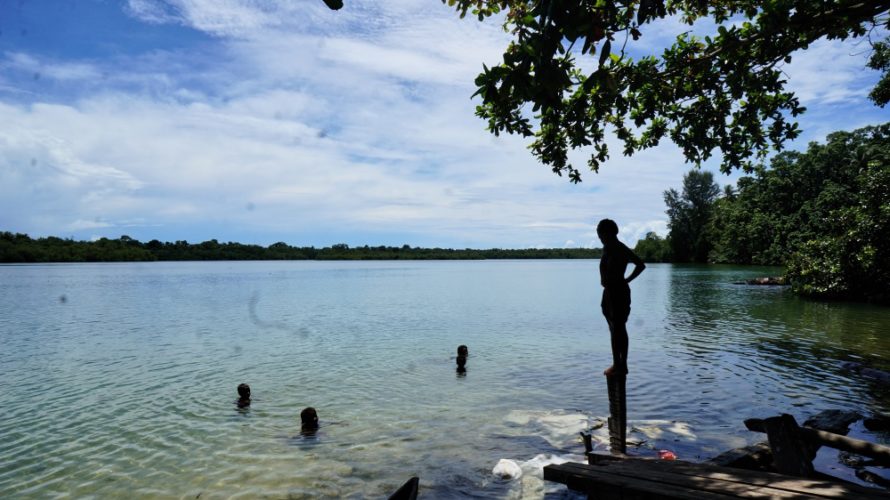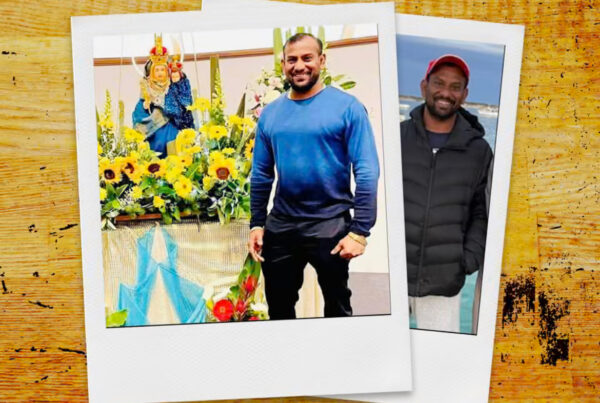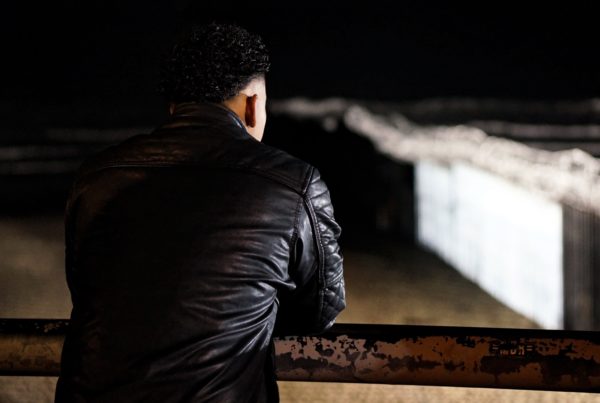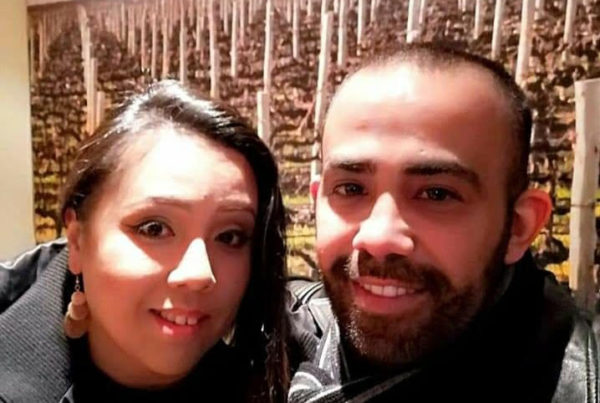At the end of October 2017, I was contacted by the Internationales Literaturfestival Berlin asking me to write a piece for their “State of Refugees” project. I pitched them a story about Manus Island, the ugliest face of Australian immigration policy, and they enthusiastically agreed to commission the piece. One week later, I was flying to Papua New Guinea [PNG].
I immediately contacted a wonderful team of Australian advocates for advice on how to get to Manus. These are the unsung heroes who have frequently visited the men in Manus over the past few years, the ones Peter Dutton regularly attacks in the press. I was advised I could obtain a visa-on-arrival with my Australian passport at the Port Moresby airport, as long as I didn’t make it obvious I would be travelling to Manus. A few days before I arrived in PNG, an Australian cameraman was refused entry into the country. He claimed it was because he had reported negatively on Manus before. Thankfully, my entry into the country went smoothly and I boarded my flight to Manus without any trouble.
Having lived and worked in Nauru for close to a year, I was aware that on these small islands any new, foreign face was immediately noticeable. When I boarded my flight to Manus, I tried to hide in my seat and sneak peeks of the other foreigners, wondering what they were doing on the plane. Perhaps they were journalists, or perhaps they were staff from the Australian Border Force. There was barely any security presence at the airport when I arrived.
I was advised I’d need a local fixer to arrange my travel around the island as there were numerous barriers for foreigners in Manus. Hotels in Manus were being told by PNG and Australian immigration to refuse accommodation to foreigners not associated with service providers. My fixer arranged accommodation for me at the Harbourview Hotel in the main town of Lorengau and a bus transfer to town from the airport. Room prices were at least A$100 per night, but I’m almost certain these were foreigner prices. I couldn’t blame the locals for trying to profit from the temporary influx of foreigners. Nobody knew when the centres would be closed down and the money would dry up.
I stayed in one of the cheaper rooms: a little, air-conditioned box in a shipping container. Directly in front of the Harbourview was the town market and the only supermarkets and restaurants on the island. Most foreigners stayed at the Harbourview or the Seeadler Hotel, but this means you were heavily monitored by the local community and PNG immigration. There were other, more private hotels, but they were not near any markets or food.
There were restaurants and bars in the hotels and a few cheap local canteens selling heavy meals of potato and meat. The best meals I ate on the island I bought from a Bangladeshi refugee who sold delicious lunch packs in the market. I liked walking through the market each morning and even bought fresh fruit and vegetables from local sellers in the market to cook my own food. Manus is a small, remote island, so most food and goods were imported and if shipments were delayed everyone missed out. The people in the market were curious and friendly, but I was almost always accompanied by my fixer.
There was one functioning ATM on the island at the main square. The one at the hospital never seemed to work. I had to plan my ATM visits because there were long lines for the ATM on Wednesdays, Thursdays, Fridays: the three days locals were paid. The ATM dispersed a maximum of about A$200 per withdrawal and I was wary of walking the short distance back to my hotel with a wallet full of cash. The locals called stray dogs “50 kina dogs” because if a foreigner hit one, a local would claim the dog was their own and demand compensation. There were phone and internet services easily available on the island, although the connection was poor.
The island’s electricity was cut off during the day to save energy and only a few places, including the Harbourview Hotel, had backup generators. I stayed in a hotel out of town for a few nights and suffered without electricity. I couldn’t charge my camera, my laptop or my phone; I couldn’t use the portable stove; my fridge turned off and ants got into all my food; and my air-conditioning stopped working. It was stiflingly hot and humid in Manus and my small room quickly became unbearable. I had a small taste of what it might be like for the majority of people living on the island. I fled my guest-house and returned to the Harbourview desperate for “connection”.
I was advised by locals and foreigners that it was not safe to travel around the island alone. I didn’t test the theory. I was told if I displayed obvious signs of wealth, such as an expensive camera or phone, I could be robbed at knife-point. Certain areas of the island were notorious for violent crime, some just a few streets from my hotel. If I walked around the island at night, I risked being accosted by intoxicated locals. No-one was exercising in the street at any time, so I decided to take a week off rather than run a kilometre in the sweltering heat.
The best way to travel around the island was by car but it was expensive. Car hire was several hundred dollars per day. A delayed shipment meant there was a shortage of fuel on the island, which meant locals were rationed 5 litres at a time to make it fair. My fixer showed me numerous beautiful swimming and fishing locations around the island, which gave me hope that perhaps Manus could become famous for something other than warehousing and torturing refugees. One of the roads had a strip of bitumen removed creating a reverse speed bump, a speed dent. This forced cars to slow down to pass. My fixer told me it was the village’s retaliation for a hit and run.
“This is the PNG way of life.”
The East Lorengau Transit Centre was a twenty to thirty minute walk from the main square in Lorengau. Only residents of the centre were permitted to enter. West Lorengau Haus and Hillside Haus construction sites were located side-by-side, more or less on the same site, a ten minute drive from town in an area of the island notorious for attacks and robberies. Last I heard, the detainees were not allowed to leave the centres. My local fixers were too scared to take me to the front gates of these centres as it would raise the suspicion of the authorities and risked possible deportation.
It was clear many of the locals didn’t fully understand what was happening in the detention centre and their opinions towards the refugees were swayed by rumour and gossip, more often than not this was information was incorrect. The locals I was associating with didn’t read newspapers, or listen to radios. I was in Manus during the stand-off at the detention centre and they knew nothing of what was happening inside the centre.
It was easy to meet refugees walking around town during the day, but these men would be a fraction of the hundreds living in the community. If I did want to speak to locals or refugees it was best not to do so in the street. We arranged a private location instead. Nobody wanted to be seen speaking to foreigners in public. Some locals were wary of foreigners who they suspected to be journalists or refugee advocates. The locals were upset with Manus being given a bad name by the international press. This gave the island an uncomfortable atmosphere. I was supposed to get a special visa to Manus, but like many people, I didn’t. This meant that if I was reported to the authorities I could be deported. For this reason I never felt very comfortable while on the island.
It was clear to me after just one week in Manus, that most of Peter Dutton’s comments to the media about the island were lies. His assessments of the conditions and the sentiments of the community were manipulations of the truth. His attacks on advocates and Greens politicians were distractions. The concept of forcibly resettling refugees on the island is not only absurd, it’s criminal. Not only are refugees being forced to live in the Manus community, the impoverished local people are being forced to accommodate them. When two communities are fighting for survival, they become competitors rather than neighbours. There is no possibility of peaceful co-existence between the two groups. The only possible solution to this mess is third-country resettlement.
My flight out of Manus was cancelled and I was forced to stay an extra day on the island. It was only one day, but I struggled to control my agitation and disappointment. I couldn’t imagine being detained there for over four years.



